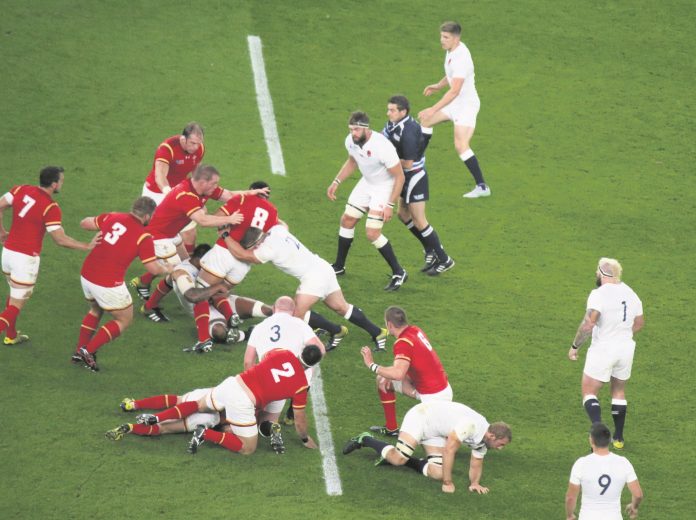Joe Fathallah, Cardiff West Socialist Party
In Wales, February means one thing – the Six Nations! The annual rugby tournament – in which the national team competes with England, Scotland, Ireland, France and Italy – is a highlight of the year.
Town and city centres are packed out on match days, with supporters basking in the occasion, taking in the game, and a few pints of course!
Rugby Union is a significant part of Welsh culture, with a strong base in working-class communities. The performances of the national team can have a significant impact on the mood on the street.
This year’s competition has started out with the disappointment of two consecutive defeats. Although, in the context of the ongoing crisis engulfing the governing body, the Welsh Rugby Union (WRU), the mostly young team must take a lot of credit for their performances in two closely contested games. Wales lost 26-27 to Scotland on the opening weekend, before a 16-14 defeat to England in the second round of matches, despite Wales leading for most of the match.
The WRU oversees the whole game in Wales, from grassroots and youth rugby, through to the professional sides and the national team. The four professional teams, known as the ‘regions’, have faced a funding crisis.
The previously officially amateur game was professionalised in the 1990s. At the time, this was a step forward, as it provided working-class boys with the chance of becoming top-level players.
Since then, however, the financial model prevalent in countries such as France, Japan, and to a lesser extent in England, of big-business club owners unsustainably bankrolling clubs, has led to an exodus from Wales. Players are tempted by the much higher salaries on offer elsewhere. Most recently, talented young Cardiff-born winger Immanuel Feyi-Waboso opted to represent England, where he is studying at Exeter University.
This model has resulted in clubs in England, such as Wasps, Worcester, and London Irish going bust in recent years.
In Wales, the four regions face the constant threat of merger into three, as the WRU desperately tries to compete with the player pay on offer elsewhere. This would result in job cuts, both to playing and non-playing staff, and mass disruption to the existing fan bases.
Saddled with debt
The WRU secured an £18 million loan for the ‘regions’ from the Coronavirus Large Business Interruption Loan Scheme. But now each region is playing around £400,000 annually to service this debt.
The last round of funding negotiations, in March 2023, almost resulted in strike action by the players’ union – in the middle of the Six Nations! In January 2023, the WRU CEO Steve Phillips was forced to resign after an investigation by BBC Wales unveiled a “toxic culture” of bullying and sexism.
This capitalist model of funding is unsustainable. The Wales team, once the pride of the nation, is suffering, as the domestic structures fail to provide enough top-level players. Community ownership of clubs would provide a socialist alternative.
International players are highly skilled workers, and are right to expect to be paid good wages. But not the enormous wages on offer in some leagues.
Highly paid executives should be replaced with democratically elected supporter representatives, with pay linked to that of a skilled worker. Ticket prices for international games, which can top £100 for some matches, need to be dramatically cut.
We can’t afford to lose the game to the whims of the capitalist market.








